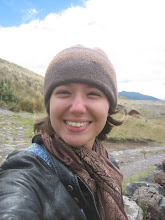A Bittersweet Experience
One of the most bittersweet realities of the Cross Cultural Solutions program is that you will have to say goodbye. You will have to say goodbye to everyone at your placement, the CCS staff, and your fellow volunteers.
At first, I thought that I wouldn’t fit in with the volunteers because of one thing or another, but two days into the program we had all bonded. I found myself wanted to play games after dinner, going to others for support during difficult times at my placement, and looking forward to group adventures. As a person who lives alone and could be labeled as a “workaholic” for a majority of the year, I began to feel a sense of balance seep back into my life. I had formed deep attachments with the people I lived with for only three weeks.
As with any CCS program, it must come to an end and you have to say goodbye to the people you have only begun to know. Of course, you have their contact information and promises to see one another again, but you also know you’ll never have this feeling again or this experience. The first group of five was set to leave on Saturday.

To honor our last night together, we devoured Miss K’s
delicious marshmallow cupcakes and went out together.
We went to Mama Africa’s restaurant to enjoy the live band and each other’s company.
After Evelyn’s dance off with the house band’s lead singer, great conversation with Cal and an over all amazing night, I ordered taxis to bring us home.
On the way home, while listening to Carlos talk up our driver, I looked out at the city lights.
The pricks of light covered the cape as far as the Atlantic.
I imagined crossing the Atlantic to where my family is and where my friends would soon be.
I imagined my own last night in Cape Town two months from now.
Saying Goodbye
On Saturday morning, our crew dragged each other out of bed to have one last meal with one another. We all piled in two different taxis and went out to the Old Biscuit Mill for a 9:00 am breakfast. Kristen, Scott, and I enjoyed our usual smorgasbord. We each tried bites and sips of veg pies, lassis, smoothies, and an unbelievable made to order peach crepe. With full stomachs, we wondered around the over priced shops and avoided any discussion about saying goodbye.
When we returned from Biscuit Mill, we greeted the new volunteers arriving from the airport. Overwhelmed, our group, along with their luggage, found refuge in Stephanie and my room. Piled on bunk beds and beanbags, we spent our last few hours together. One by one the group staying behind said goodbye to the five people leaving. With sad hearts, I hugged Cal, Carlos, Meghan, Evelyn, and Kelsey goodbye.
Repeated Loss
At the end of a long emotionally taxing day, my roommate, Stephanie and I laid quietly in our beds thinking about the friends that left or would be leaving. As we listened to the sounds of the new arrivals wondering the halls, she turned to me and said, “We are going to have to do this every three weeks? We are going to experience this repeated loss?”




 To honor our last night together, we devoured Miss K’s delicious marshmallow cupcakes and went out together. We went to Mama Africa’s restaurant to enjoy the live band and each other’s company. After Evelyn’s dance off with the house band’s lead singer, great conversation with Cal and an over all amazing night, I ordered taxis to bring us home. On the way home, while listening to Carlos talk up our driver, I looked out at the city lights. The pricks of light covered the cape as far as the Atlantic. I imagined crossing the Atlantic to where my family is and where my friends would soon be.
To honor our last night together, we devoured Miss K’s delicious marshmallow cupcakes and went out together. We went to Mama Africa’s restaurant to enjoy the live band and each other’s company. After Evelyn’s dance off with the house band’s lead singer, great conversation with Cal and an over all amazing night, I ordered taxis to bring us home. On the way home, while listening to Carlos talk up our driver, I looked out at the city lights. The pricks of light covered the cape as far as the Atlantic. I imagined crossing the Atlantic to where my family is and where my friends would soon be.